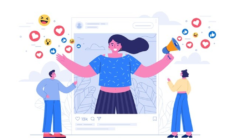I have to admit that my knee jerk reaction to this question used to be “no.” Social media is above all, social, and I never understood why anyone would block comments. I know Seth Godin blocks comments on his blog because he explains that he would feel compelled to answer everyone who posts a comment. To me, that’s the point.
Now, we don’t get that many comments on this blog, and I must admit that I don’t honestly feel compelled to answer most of them, although I do answer a few. But I do appreciate everyone who does take the time to comment and I have never cut off the conversation, even on those few occasions where I thought there was more heat than light.
But I recently heard a story that caused me to reconsider. What about a situation where merely allowing the conversation of a volatile few could be deeply insulting to your mainstream audience? Apparently General Mills had to grapple with just such as situation last year.
The company came out with a Cheerios commercial that depicted a multicultural family, which I wouldn’t have expected to be terribly controversial nowadays (and I honestly didn’t understand why it was so controversial 50 years ago when I was a kid). But a vocal minority of viewers on YouTube apparently felt the need to leave a few choice comments that were offensive (understandably so) to the vast majority of viewers.
What to do? Did those commenters have a free speech right to voice their opinions, no matter how much it insulted others? Yes. But what does that do to serve the Cheerios brand? Nothing. Why should Cheerios be turned into the instigator of an insulting conversation when they are just trying to do a commercial?
So they turned off comments.
As I said, usually I would not recommend turning off comments, but this situation really seems like a poster child for doing so, because you are sparing the majority from being upset by a vocal minority who would never say such things in public. I wonder if that is a test of whether comments should be turned off–if the people making the comments would be OK with making the comment publicly, then it is a form of free speech and maybe we should think about leaving the comments on and engaging with the issue. But when people are hiding behind anonymity, then it is a problem to upset other people with that kind of conversation.




